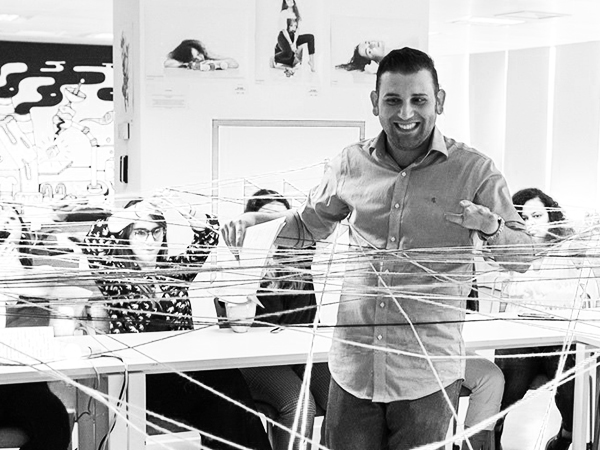GI MAP DESIGN
- Lead Scientist: Maria Helena Souto
- Research Group: Map Design
- Financing: Grant Awarded by Creative Europe - Culture Sub-programme (1.157.898,00€)
- Date: 20 October 2014 - 19 October 2018
Large-scale cooperation project, co-financed by the Creative Europe Programme, under the sub-programme for culture, interdisciplinary and non-profit, bringing together seven European university institutions under the leadership of the Polytechnic of Turin (Italy), IADE (Portugal), Universidad de Oviedo (Spain), Vrije University (Netherlands), ZRC SAZU (Slovenia), Université Grenoble Alpes (France) and SiTI (Italy).
MoMoWo is the first project selected and funded by the European Union dedicated to studying the work of professional women in architecture, product design, interior design, landscape architecture, urban planning and civil engineering, from the modern movement until modern days (1918-2018). The project aims to celebrate the contributions made by professional women to Europe’s material and cultural heritage. The various activities that make up the MoMoWo programme were designed with the intention of strengthening the social and economic role of professional women in the project’s culture.
GI IDEAS(R)EVOLUTION
- Lead Scientist: António Cruz Rodrigues
Defining the economic value of the Design/ Artist approach/ activity /profession in a entrepreneurship business context: A model building research.
GI UX.PROJECT[ON]
- Lead Scientist: Lucy Niemeyer
A Virtual Reality based tool for learning Basic Design: A pilot study
Increasingly familiar with new digital technologies, the designers of the 21st century represent a permanent challenge for design education. During the first stages of this training, Basic Design aims at incorporating fundamental principles of design through a holistic, creative, and experimental approach. Despite its centrality in the academic training of designers, Basic Design has not been exploited very much in terms of the use of new technologies. In fact, the benefits of using instruments based on virtual reality technology (games, simulation, virtual worlds) for learning are known.
As part of a broader study aimed at testing the contribution of a virtual reality-based tool to improve learning Basic Design topics, the present study aims to develop the research plan and validate the instruments to be used (the experimental scenario; metrics, scales, tools; procedures for data collection; and others), including conducting a pilot study.
GI UX.PROJECT[ON]
- Lead Scientist: Joaquim dos Reis
WarnChild - Designing warnings for children: a cognitive-developmental perspective
The prevention of accidents related to harmful substances is especially important in younger children because they have not yet developed the cognitive skills that allow them to “read” the warnings in the same way as adults. Warnings are part of an accident prevention quality system and have three main purposes: 1) to help people make informed decisions; 2) to reduce or decrease accidents and health problems by promoting safe behaviours; and 3) to remind users about the potential hazards of the products.
Thus, this study aims to find out how children between 7-10 years old and who are in the concrete operations stage understand the warnings about poisonous products and how they discriminate poisonous/harmful products from non-harmful products. The objectives of this study are also to (1) design warnings about harmful products based on the knowledge of children about them; (2) expose children to these warnings on packages containing these substances or products and verify that they notice and understand these warnings and (3) verify that children more easily adhere to these age-appropriate warnings compared to the warnings included on current commercial packaging.
ID:Co.Lab
- Lead Scientists:
- IADE-U: Ana Margarida Ferreira
- IST: Carlos Santos Silva
- FCSH: Maria Inês Queiroz
Financing: Calouste Gulbenkian Foundation, as part of the competition "Innovative Projects in the Educational Field. Development of Higher Education."
L3 – Lisboa Laboratório Comum de Aprendizagem
Collaborative and transdisciplinary project that aims to develop the training of university students, particularly in the areas of engineering, design, social sciences and humanities, through the application of innovative methodologies of active learning based on solving problems of vulnerable communities. The Installation of Experimental Laboratories for collaborative learning, an unprecedented experience in Portugal, brings together the academic community and civil society, crossing scientific and lay knowledge, promoting new forms of knowledge emerging in a contemporary context and conscious of today’s history.
Multidisciplinary consortium of university institutions:
- IADE-U – Institute of Art, Design and Enterprise - University, through UNIDCOM/ID:Co.Lab - Collaborative Research in Design and Sustainable Innovation
- IST – Superior Technical Institute of the University of Lisbon, through IN+ – Centre for Studies in Innovation, Technology and Development Policies
- FCSH – Faculty of Social Sciences and Humanities of Universidade Nova de Lisboa, through the IHC – Institute of Contemporary History.
